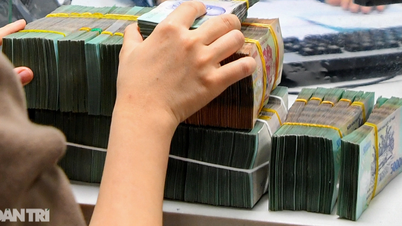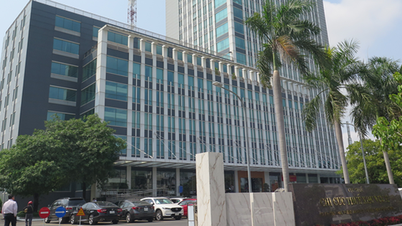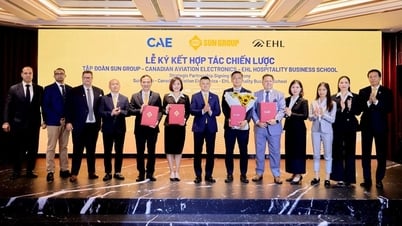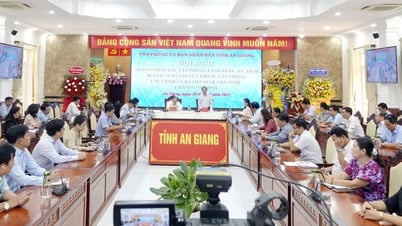Illustration photo.
Recently, many people have expressed concern over the information that any money transferred into a personal account can be inspected by the tax authorities and subject to personal income tax. However, according to tax representatives and experts, this is a misunderstanding and is not in accordance with current regulations.
The representative of the Tax Department affirmed: The tax authority only considers the amounts that are essentially income from the production and trading of goods and services to calculate personal income tax. Civil transfers between individuals such as wedding gifts, support in difficult times, gifts between relatives, interest-free loans... are not subject to tax and are not subject to tax inspection.
In fact, the tax sector only applies inspection and verification measures when there are signs of tax evasion from business activities, but does not "scrutinize" all personal transfer transactions. The representative of the Tax Department emphasized that the authorities are not allowed to directly access personal accounts, but can analyze cash flows, combine data from banks and other authorities to detect revenue concealment when necessary.
The recent case of KOL Vu Nam Phuong (nicknamed "Cun Bong") is a clear example. According to the investigation results, Phuong only declared a revenue of more than 5 billion VND but actually earned more than 120 billion VND. The failure to issue invoices and not truthfully declare caused a loss of more than 10 billion VND in tax to the budget. The investigation agency has prosecuted the defendant and the case for the act of "Violating accounting regulations causing serious consequences".
This case is a warning to individuals and organizations – especially famous people doing business on digital platforms – who are conducting business but not complying with tax obligations. Tax authorities will only take action when there is clear evidence of tax evasion, not targeting all personal income.
Many types of income are exempt from tax by law.
The Law on Personal Income Tax and Circular 111/2013/TT-BTC clearly stipulate many types of income that are exempt from tax, such as:
- Income from real estate transfers between spouses, parents - children, grandparents - grandchildren, siblings;
- The only property is a house or land transferred after ownership for 183 days or more;
- Income from inheritance and gifts of real estate between the above relatives;
- Interest on bank deposits, life insurance, government bonds, remittances;
- Income from agricultural production, pensions, scholarships, insurance compensation, overtime (higher than the normal hourly wage), aid, humanitarian funding...
In addition, new business households must issue electronic invoices for all transactions of selling goods and providing services – even if the buyer does not take the invoice. Failure to issue invoices as required may result in additional tax and fines. However, this regulation does not apply to non-business individuals or ordinary civil transactions.
Experts say that people should stay calm and proactively learn about the law, and not be alarmed by unverified rumors. Current tax policies aim for fairness and transparency, only handling the “right person, right job” to prevent tax losses and not affect the legitimate rights of the people.
The tax authority also recommends that individuals retain documents and papers related to cash flows into their accounts to provide a basis for explanation if necessary. Correct understanding and compliance with regulations not only helps protect the legitimate rights of each individual but also contributes to building a transparent and effective tax environment.
Source: https://baoquangninh.vn/co-quan-thue-khong-danh-thue-moi-khoan-tien-vao-tai-khoan-ca-nhan-3364124.html





![[Photo] National Assembly Chairman Tran Thanh Man holds talks with New Zealand Parliament Chairman](https://vphoto.vietnam.vn/thumb/1200x675/vietnam/resource/IMAGE/2025/8/28/c90fcbe09a1d4a028b7623ae366b741d)
![[Photo] Politburo works with the Standing Committee of Cao Bang Provincial Party Committee and Hue City Party Committee](https://vphoto.vietnam.vn/thumb/1200x675/vietnam/resource/IMAGE/2025/8/28/fee8a847b1ff45188749eb0299c512b2)


![[Photo] General Secretary To Lam attends the opening ceremony of the National Achievements Exhibition](https://vphoto.vietnam.vn/thumb/1200x675/vietnam/resource/IMAGE/2025/8/28/d371751d37634474bb3d91c6f701be7f)






























































































Comment (0)